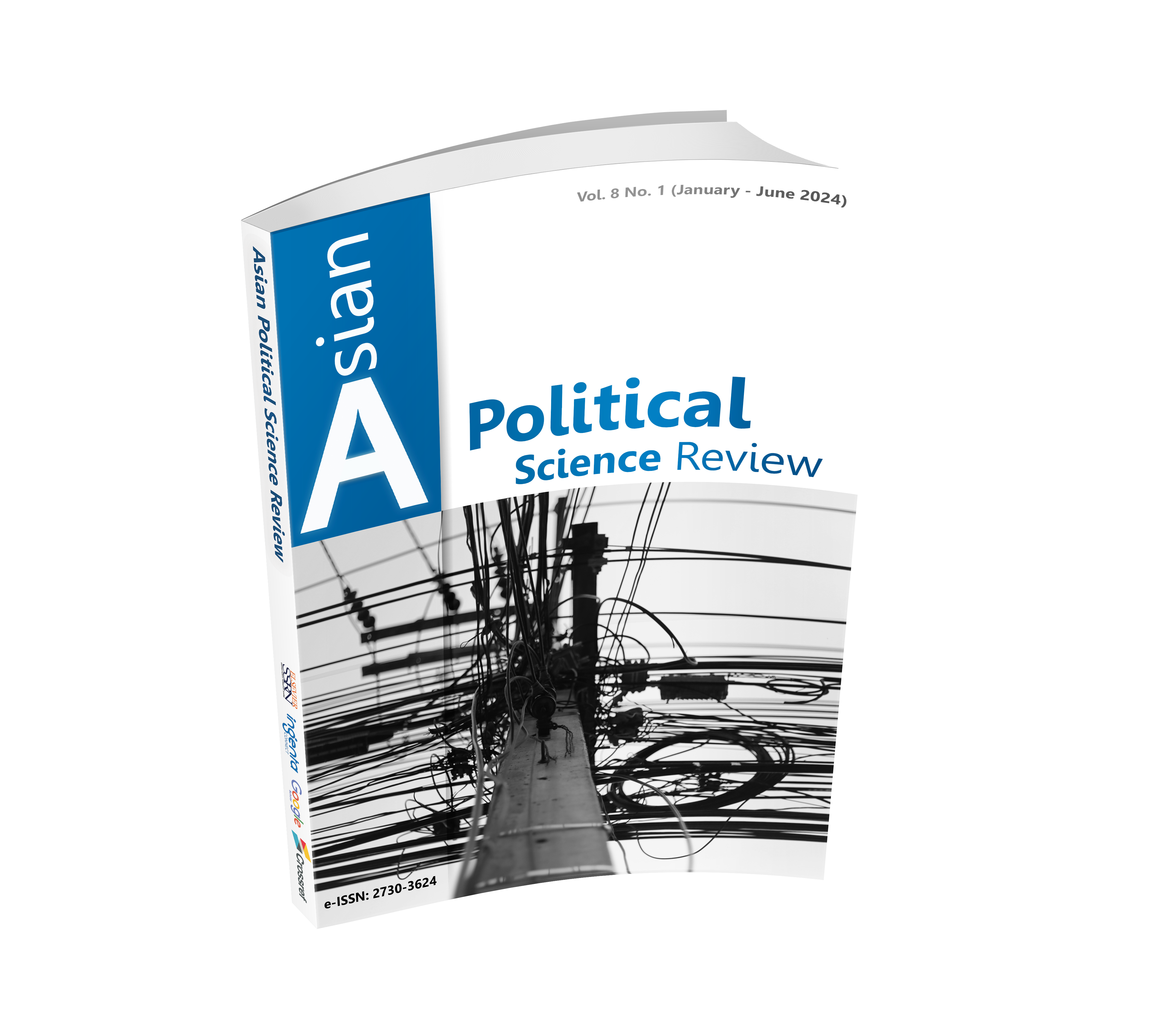CHALLENGES AND SUCCESSES IN PUBLIC PRIVATE HOUSING INITIATIVES FOR THAILAND'S LOW-INCOME EARNERS
DOI:
https://doi.org/10.14456/apsr.2024.5Keywords:
Public-Private Partnerships, Low-Income Housing, Stakeholder Engagement, Policy Framework, ThailandAbstract
This study aims to provide guidelines for public-private sector collaboration in housing projects for low-income earners in Thailand. Using document research and expert interviews, it delves into the complexities of public-private partnerships (PPPs) in the housing sector. The research looks into successful international examples from Singapore, Japan, the US, and the UK, noted for their effective PPP housing initiatives. It outlines major challenges like regulatory barriers and financial constraints, alongside successful strategies such as stakeholder collaboration and innovative financing. Recommendations are made for a solid policy framework, innovative financing mechanisms, and enhanced stakeholder involvement to support PPPs in creating sustainable, affordable housing for low-income groups in Thailand. The study also suggests improving act management, integration, and implementation by merging related agencies into a single ministry.
Downloads
References
Anoruo, E., Akpom, U., & Nwoye, Y. (2017). Dynamic Relationship between Economic Policy Uncertainty and Housing Market Returnsin Japan. Journal of International Business and Economics, 5(2), 28-37.
Batra, R. (2021). A thematic analysis to identify barriers, gaps, and challenges for the implementation of public-private-partnerships in housing. Habitat International, 118, 102454.
Batra, R. (2023). Review of public–private partnerships across building sectors in nine European countries: Key adaptations for PPP in housing. Engineering, Construction and Architectural Management, 30(7), 2904-2927.
Best, R. (1996). Successes, failures, and prospects for public housing policy in the United Kingdom. Housing Policy Debate, 7(3), 535-562.
Canada Mortgage and Housing Corporation. (n.d.). CMHC. Retrieved from www.cmhc-schl.gc.ca/.
Chin, J. (2021). The shifting role of public–private partnerships in vacant property redevelopment. Land Use Policy, 105, 105430.
Ebrahimi, A., & Aghaei, P. (2021). Affordable housing policies and programs; An Overview of the American Experience. Journal of Vision Future Cities, 2(1), 49-59.
El-Gohary, N., Osman, H., & El-Diraby, T. (2006). Stakeholder management for public private partnerships. International Journal of Project Management, 24(7), 595-604.
Goodchild, B. (2008). Triadic classifications and triangular thinking: Their use in urban planning and urban design. People, Place & Policy Online, 2(3), 122-131.
Hasson, F., & Keeney, S. (2011). Enhancing rigour in the Delphi technique research. Technological Forecasting and Social Change, 78(9), 1695-1704.
Heo, Y. (2014). The development of housing policy in Singapore and the sources of path dependence. Housing, Theory and Society, 31(4), 429-446.
Hodge, G., & Greve, C. (eds.). (2005). The Challenge of Public–Private Partnerships: Learning from International Experience. Cheltenham: Edward Elgar Publishing.
Israel, M. (2004). Strictly Confidential? Integrity and the Disclosure of Criminological and Socio–Legal Research. British Journal of Criminology, 44(5), 715-740.
Leigland, J. (2018). Public-private partnerships in developing countries: The emerging evidence-based critique. The World Bank Research Observer, 33(1), 103-134.
Madden, J. (2011). Overcoming collaboration barriers in affordable housing public-private partnerships. Academy of Management Proceedings, 2011(1), 1-6.
Merriam, S., & Tisdell, E. (2016). Qualitative research: A guide to design and implementation. New Jersey: John Wiley & Sons.
Phang, S. (2015). Singapore's Housing Policies: Responding to the Challenges of Economic Transitions. The Singapore Economic Review, 60(3), 1550036.
Public-Private Partnership Act, 2019.
Ronnarong, S. (2009). Housing subsidy for low-income earners: A case study of subsidy through the national housing authority. Master’s Thesis, Chulalongkorn University.
Shimomura, T., & Matsumoto, T. (2010). Policies to Enhance the Physical Urban Environment for Competitiveness: A New Partnership between Public and Private Sectors (Working Paper 2010/01). Paris: OECD Publishing.
Taeshapotiwarakun, C. (2015). Housing Inequality in the Northern Suburban Areas of Bangkok. Doctor of Philosophy Thesis, Chulalongkorn University.
Thammasat University Research and Consultancy. (2017). The forecasting housing needs and affordability for Thailand's housing demand for 2017-2037. Bangkok: Triple Group.
Torres, I. (2012). Branding slums: a community‐driven strategy for urban inclusion in Rio de Janeiro. Journal of Place Management and Development, 5(3), 198-211.
Turner, R., & Carlson, L. (2003). Indexes of Item-Objective Congruence for Multidimensional Items. International Journal of Testing, 3(2), 163-171.
United Nations. (2020). The Sustainable Development Goals Report 2020. Retrieved from https://unstats.un.org/sdgs/report/2020/.
Van Bortel, G., Gruis, V., Nieuwenhuijzen, J., & Pluijmers, B. (eds.). (2019). Affordable Housing Governance and Finance Innovations, partnerships and comparative perspectives. London: Routledge.
Verhoest, K., Petersen, O., Scherrer, W., & Soecipto, R. (2014). Policy commitment, legal and regulatory framework, and institutional support for PPP in international comparison: Indexing countries' readiness for taking up PPP (Working Paper 2014-03). Salzburg: Universität Salzburg.

Downloads
Published
How to Cite
Issue
Section
License
Copyright (c) 2023 Authors

This work is licensed under a Creative Commons Attribution-NonCommercial-NoDerivatives 4.0 International License.











.png)


